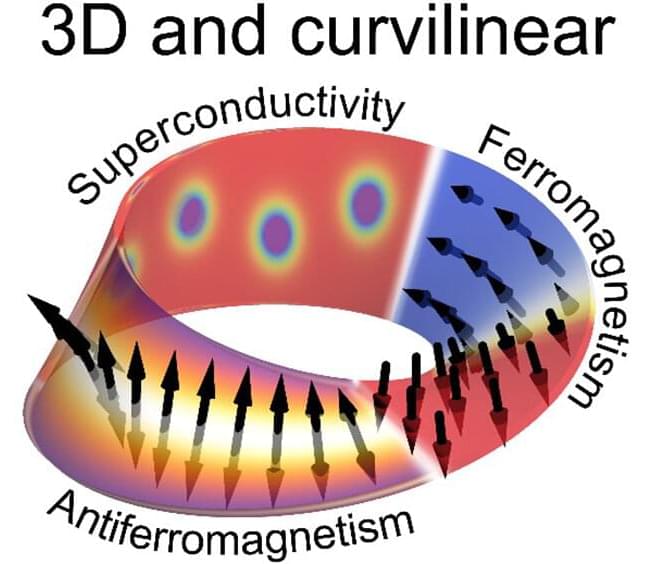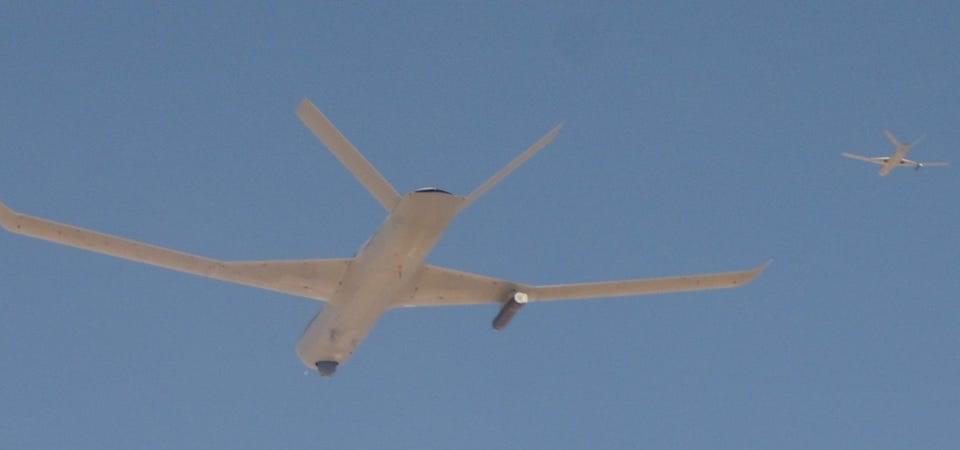Homer Hickam, author of the book Rocket Boys that also became the film October Sky, says that NASA could teach Blue Origin and SpaceX some things about space.


To check out any of the lectures available from Great Courses Plus go to http://ow.ly/dweH302dILJ
We’ll soon be capable of building self-replicating robots. This will not only change humanity’s future but reshape the galaxy as we know it.
Get your own Space Time tshirt at http://bit.ly/1QlzoBi.
Tweet at us! @pbsspacetime.
Facebook: facebook.com/pbsspacetime.
Email us! pbsspacetime [at] gmail [dot] com.
Comment on Reddit: http://www.reddit.com/r/pbsspacetime.
Support us on Patreon! http://www.patreon.com/pbsspacetime.
Help translate our videos! https://www.youtube.com/timedtext_cs_panel?tab=2&c=UC7_gcs09iThXybpVgjHZ_7g.
Previous Episode — Is there a 5th Fundamental Force.
https://www.youtube.com/watch?v=MuvwcsfXIIo.
Should we Build a Dyson Sphere?

Water has been detected in the most massive galaxy in the early Universe, along with its neighbouring companion, according to new observations from the Atacama Large Millimeter/submillimeter Array (ALMA). In addition to H2O, astronomers found carbon monoxide (CO) in the galaxy pair, which are designated as SPT0311-58 and located 12.88 billion light years from Earth.
Detection of these two molecules in abundance suggests that the molecular Universe was already going strong, only a relatively short time after the forging of elements in early generations of stars. The new research is the most detailed study of molecular gas content of a galaxy in the early Universe to date and the most distant detection of H20 in a regular star-forming galaxy. The research is published this week in The Astrophysical Journal.
Astronomers discovered the two galaxies in 2017. The pair’s location, or time, places them within the Epoch of Reionization. This epoch, as highlighted in the diagram below, occurred when the Universe was only 5% of its current age – and the first stars and galaxies were being born. Scientists believe that the two galaxies may be merging, and that their rapid star formation is not only using up their gas, but may eventually evolve the pair into massive, elliptical galaxies like those seen in the Local Universe.

An international team of scientists from Austria and Germany has launched a new paradigm in magnetism and superconductivity, putting effects of curvature, topology, and 3D geometry into the spotlight of next-decade research. The results are published in Advanced Materials.
Traditionally, the primary field in which curvature plays a pivotal role is the theory of general relativity. In recent years, however, the impact of curvilinear geometry has entered various disciplines, ranging from solid-state physics to soft-matter physics to chemistry and biology; and giving rise to a plethora of emerging domains, such as curvilinear cell biology, semiconductors, superfluidity, optics, plasmonics and 2D van der Waals materials. In modern magnetism, superconductivity and spintronics, extending nanostructures into the third dimension has become a major research avenue because of geometry-, curvature-and topology-induced phenomena. This approach provides a means to improve conventional functionalities and to launch novel functionalities by tailoring the curvature and 3D shape.
“In recent years, there have appeared experimental and theoretical works dealing with curvilinear and three-dimensional superconducting and (anti-)ferromagnetic nano-architectures. However, these studies originate from different scientific communities, resulting in the lack of knowledge transfer between such fundamental areas of condensed matter physics as magnetism and superconductivity,” says Oleksandr Dobrovolskiy, head of the SuperSpin Lab at the University of Vienna. “In our group, we lead projects in both these topical areas and it was the aim of our perspective article to build a ‘bridge’ between the magnetism and superconductivity communities, drawing attention to the conceptual aspects of how extension of structures into the third dimension and curvilinear geometry can modify existing and aid launching novel functionalities upon solid-state systems.”
A new kind of Technology developed by Meta AI will enable more intelligent and efficient robots to enter our homes and replace humans in warehouses through advances in Artificial Intelligence. DIGIT and ReSkin are two advanced technologies that enable Robots to have better feelings than even some humans. One of the biggest and best AI Scientists, Yann LeCun is working on this very futuristic technology that may be considered one of the best robots and AI’s of 2021. Through Deep Learning and machine learning robotics, the smart humanoid robots will be abilities previously thought impossible.
–
If you enjoyed this video, please consider rating this video and subscribing to our channel for more frequent uploads. Thank you! smile
–
TIMESTAMPS:
00:00 A new type of Robot.
02:25 A new way to sense the world.
04:45 Is this technology for everyone?
07:13 DIGIT and the Metaverse.
08:32 Last Words.
–
#ai #meta #facebook

Deadlines.
You either love them, hate them, or experience both sentiments at the same time.
For AI-based true self-driving cars, there isn’t a human driver involved. Keep in mind that true self-driving cars are driven via an AI driving system. There isn’t a need for a human driver at the wheel, and nor is there normally a provision for a human to drive the vehicle. For my extensive and ongoing coverage of Autonomous Vehicles (AVs) and especially self-driving cars, see the l… See more.
A deadline can be handy as a focal point that aids in rallying together everyone towards achieving something great. On the other hand, a deadline can turn each person against the other and fester a bitter fight that leaves all involved forever scarred and upset due to a seemingly arbitrary and reprehensible line in the sand.
Deadlines do decidedly set expectations, though at times the expectations are out of whack with reality.

The wheeled Jaeger-C is a small machine with a low profile designed to attack from ambush. In some ways, it might be seen as a mobile robotic mine. This is especially true because the makers note it can be remote-controlled or “autonomously with image analysis and trained models linked to robotic actions,” according to a report in Overt Defense. This sounds very much like the sort of deep learning increasingly used for other automatic target recognition, a trend driven by the ready availability of new, low-cost hardware for small uncrewed systems.
The Jaeger-C will sit in ambush in Gaard mode – a long-term silent watch mode – until it detects potential targets. It will then switch into either Chariot mode or Goliath mode depending on whether the targets are personnel or vehicles.

The Air Force’s Skyborg team flew two General Atomics MQ-20 Avenger stealth drones on the “multi-hour” Oct. 26 flight over California. One of the Ave… See more.
Two stealth drones soared over Edwards Air Force Base in California last week, offering some encouraging evidence that the U.S. Air Force’s new drone “brain” not only works—it works with a bunch of different drone types.
The Air Force hopes to install the Skyborg autonomy core system in a wide array of unmanned aerial vehicles. The idea is for the ACS to steer armed drones with minimal human control—even in the heat of battle. That way the drones can fly as robotic wingmen for manned fighters without demanding too much of the busy human pilots.

The value of attending major industry events like Nvidia’s GTC (GPU Technology Conference) is to see what companies are and are not focusing on going forward. Nvidia has transformed the agenda for GTC from gaming into one of the leading AI events. The agenda also includes HPC and data center networking topics, representing other areas Nvidia has been expanding into in the last few years. If the agenda for the upcoming GTC event is any indication, the company has greatly increased its focus on autonomous machines, which includes all forms of robotics.
In addition to autonomous vehicles, this GTC agenda includes more than ten sessions focused on autonomous machines. As the company has done with other market segments, the autonomous machines sessions will bring together experts from academia, the industry, and Nvidia to provide training, industry insights, and technical assistance in AI and robotics. Some of the experts attending include Brian Gerkey, Co-founder and CEO of Open Robotics, Patty Delafuente from the University of Maryland, Ajit Jaokar and Ayşe Mutlu form the University of Oxford, and Johan Barthelemy from the University of Wollongong. There will also be AI and robotics experts from Denso Wave, Digeiz, Hammerson, Integral AI, Milestone Systems, Nota, and SK Telecom presenting at the conference.

American astrophysicists have used the Decadal Survey (DS)—also called Astro 2020 and produced by the National Academies of Science—to recommend a space telescope capable of photographing potentially habitable worlds.
The report recommends that a flagship space observatory will need a six-meter mirror to “provide an appropriate balance between scale and feasibility.”
An eight-meter aperture telescope of the scale of LUVOIR-B would be unlikely to launch before the late 2040… See more.